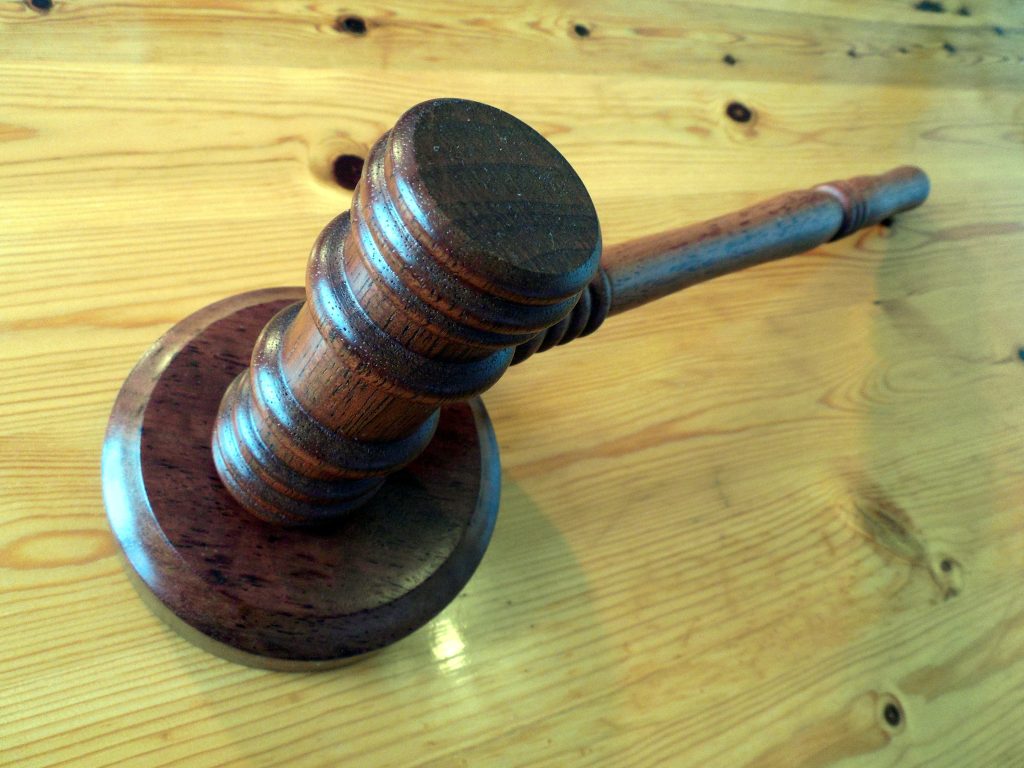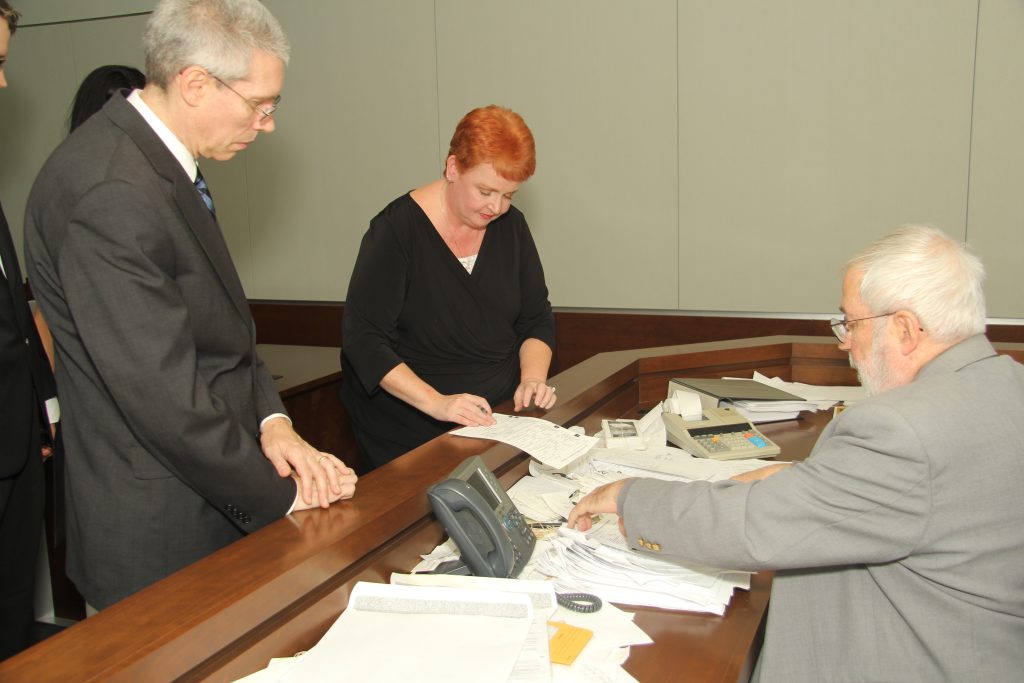 Despite stringent rules and regulations designed to keep unlicensed drivers off the road, minors often find their way behind the wheel. Police in Gonzales, Louisiana, were forced to reckon with the seriousness of such a driver when a high-speed police chase on Interstate 10 turned deadly in May of 2004. The outcome of this chase became the subject of a lawsuit left unsettled until 2017—a case which pondered: to what standard should police be held when engaged in an active car chase?
Despite stringent rules and regulations designed to keep unlicensed drivers off the road, minors often find their way behind the wheel. Police in Gonzales, Louisiana, were forced to reckon with the seriousness of such a driver when a high-speed police chase on Interstate 10 turned deadly in May of 2004. The outcome of this chase became the subject of a lawsuit left unsettled until 2017—a case which pondered: to what standard should police be held when engaged in an active car chase?
Just before eight o’clock in the evening, a Gonzales city police officer noticed an Oldsmobile without its headlights activated. The car, failing to stop or slow down, was pursued onto Interstate 10 by Louisiana State Police. The chase continued for nearly twenty minutes despite attempts to stop the vehicle with a spike strip. Then, the Oldsmobile’s fourteen-year-old driver lost control of the car and spun into a vehicle traveling in the opposite direction, driven by the Bristols. The Oldsmobile driver died on impact, while all seven passengers in the other car were severely injured, prompting a lawsuit against the Louisiana State Police. At trial, a jury found no liability for the Bristols’ injuries on the part of the department, and an appeal followed.
The Louisiana Highway Regulatory Act is excepted by La R.S. 32:24—which provides, under certain circumstances, statutory immunity to drivers of emergency vehicles. As such, police officers are allowed to exceed maximum speed limits and disregard other road rules so long as they maintain regard for the safety of others and have their audible or visual signals activated. However, this exception is not absolute: juries are allowed to determine, based on the circumstances and after being instructed on the law, whether a standard of ordinary negligence or a heightened reckless disregard standard should gauge the standard of care for an emergency vehicle driver. Lenard v. Dilley, 784 So.2d 706 (La. Ct. App. 2001).
 The Collateral Source Rule in Louisiana law prevents a tortfeasor (a person who harmed another) from benefiting from the victim’s receipt of funds from an independent source. So what does that mean?
The Collateral Source Rule in Louisiana law prevents a tortfeasor (a person who harmed another) from benefiting from the victim’s receipt of funds from an independent source. So what does that mean? Louisiana Personal Injury Lawyer Blog
Louisiana Personal Injury Lawyer Blog


 Lawsuits and appeals can bring up complicated legal issues such as jurisdiction. Jurisdiction is a legal principle that determines the extent and authority of a court to hear and decide cases. There are two primary types of jurisdiction: personal jurisdiction and subject matter jurisdiction.
Lawsuits and appeals can bring up complicated legal issues such as jurisdiction. Jurisdiction is a legal principle that determines the extent and authority of a court to hear and decide cases. There are two primary types of jurisdiction: personal jurisdiction and subject matter jurisdiction. Insurance claims can be complex, even for the courts. Lawsuits involving multiple plaintiffs and defendants are just as complicated. Claims, cross-claims, and counterclaims can arise from a single accident.
Insurance claims can be complex, even for the courts. Lawsuits involving multiple plaintiffs and defendants are just as complicated. Claims, cross-claims, and counterclaims can arise from a single accident. Most consumers in the U.S. are aware of increasingly high medical costs. For most people, those high costs are not directly paid; instead, they appear on a bill along with what one’s insurance company will pay as part of an agreement with the medical provider. Many insured consumers will look for “in-plan” medical providers to ensure that most costs are covered. Those “in-plan” providers are part of a preferred provider organization (PPO), which is a subscription-based medical arrangement that allows a substantial discount on rates to be charged.
Most consumers in the U.S. are aware of increasingly high medical costs. For most people, those high costs are not directly paid; instead, they appear on a bill along with what one’s insurance company will pay as part of an agreement with the medical provider. Many insured consumers will look for “in-plan” medical providers to ensure that most costs are covered. Those “in-plan” providers are part of a preferred provider organization (PPO), which is a subscription-based medical arrangement that allows a substantial discount on rates to be charged.  If you’re in a car wreck, you expect, or hope, to be covered for UM Bodily injury (UMBI) up to certain policy limits. However, when signing up for insurance, you must carefully review the coverages. The law in Louisiana has strict requirements when it comes to selecting or rejecting Uninsured motorist coverage. If you aren’t careful, you may unknowingly reject or limit the coverage you thought you had. New Orleans citizen Zachary Addison learned this lesson the hard way after being involved in a car incident in 2013.
If you’re in a car wreck, you expect, or hope, to be covered for UM Bodily injury (UMBI) up to certain policy limits. However, when signing up for insurance, you must carefully review the coverages. The law in Louisiana has strict requirements when it comes to selecting or rejecting Uninsured motorist coverage. If you aren’t careful, you may unknowingly reject or limit the coverage you thought you had. New Orleans citizen Zachary Addison learned this lesson the hard way after being involved in a car incident in 2013.  Default judgments usually occur when one side fails to Answer a lawsuit after being served. You must collect and produce sufficient evidence to establish your claims to succeed with a default judgment. This is the same as if you were going to trial. Evidence is the key to all lawsuits; lawsuits live and die by what can and cannot be proven in court. Therefore, the party pursuing a default judgment must present competent evidence proving their claims following the standards for default judgment in Louisiana, as demonstrated by the case below.
Default judgments usually occur when one side fails to Answer a lawsuit after being served. You must collect and produce sufficient evidence to establish your claims to succeed with a default judgment. This is the same as if you were going to trial. Evidence is the key to all lawsuits; lawsuits live and die by what can and cannot be proven in court. Therefore, the party pursuing a default judgment must present competent evidence proving their claims following the standards for default judgment in Louisiana, as demonstrated by the case below. What happens if you are hurt on the job? Not only do you have to deal with the physical effects of your injury, but you also have to navigate when it is safe to return to work. The workers’ compensation system is designed to aid injured workers. It can provide compensation for lost wages and medical treatment. However, it can often be complex to navigate.
What happens if you are hurt on the job? Not only do you have to deal with the physical effects of your injury, but you also have to navigate when it is safe to return to work. The workers’ compensation system is designed to aid injured workers. It can provide compensation for lost wages and medical treatment. However, it can often be complex to navigate.  Despite stringent rules and regulations designed to keep unlicensed drivers off the road, minors often find their way behind the wheel. Police in Gonzales, Louisiana, were forced to reckon with the seriousness of such a driver when a high-speed police chase on Interstate 10 turned deadly in May of 2004. The outcome of this chase became the subject of a lawsuit left unsettled until 2017—a case which pondered: to what standard should police be held when engaged in an active car chase?
Despite stringent rules and regulations designed to keep unlicensed drivers off the road, minors often find their way behind the wheel. Police in Gonzales, Louisiana, were forced to reckon with the seriousness of such a driver when a high-speed police chase on Interstate 10 turned deadly in May of 2004. The outcome of this chase became the subject of a lawsuit left unsettled until 2017—a case which pondered: to what standard should police be held when engaged in an active car chase? Personal injuries occur every day in society and should be taken seriously. Yet, courts must judge the importance of each accident. As a result, not all injuries are ruled in favor of the injured individual. A lawyer representing an injured person must investigate the circumstances and facts surrounding the injury with due diligence. The lawyer must show the court that his client’s case should be heard because the evidence says so. However, when video evidence of a slip and fall injury in a hospital is not obtained, should a court allow the lawyer to continue investigating his client’s accident? A case out of Baton Rouge explores this question and reminds lawyers of their responsibility to act diligently in attaining evidence for their clients.
Personal injuries occur every day in society and should be taken seriously. Yet, courts must judge the importance of each accident. As a result, not all injuries are ruled in favor of the injured individual. A lawyer representing an injured person must investigate the circumstances and facts surrounding the injury with due diligence. The lawyer must show the court that his client’s case should be heard because the evidence says so. However, when video evidence of a slip and fall injury in a hospital is not obtained, should a court allow the lawyer to continue investigating his client’s accident? A case out of Baton Rouge explores this question and reminds lawyers of their responsibility to act diligently in attaining evidence for their clients. It’s reasonable to want to feel safe at work, no matter your job. Employers must keep their employees free from unnecessary danger and generally provide a safe working environment. Even given this duty, the law doesn’t always hold them responsible for the actions of criminals. A recent lawsuit out of Lafayette discusses the principles court asses to determine what remedies are available to employees when crime happens.
It’s reasonable to want to feel safe at work, no matter your job. Employers must keep their employees free from unnecessary danger and generally provide a safe working environment. Even given this duty, the law doesn’t always hold them responsible for the actions of criminals. A recent lawsuit out of Lafayette discusses the principles court asses to determine what remedies are available to employees when crime happens.